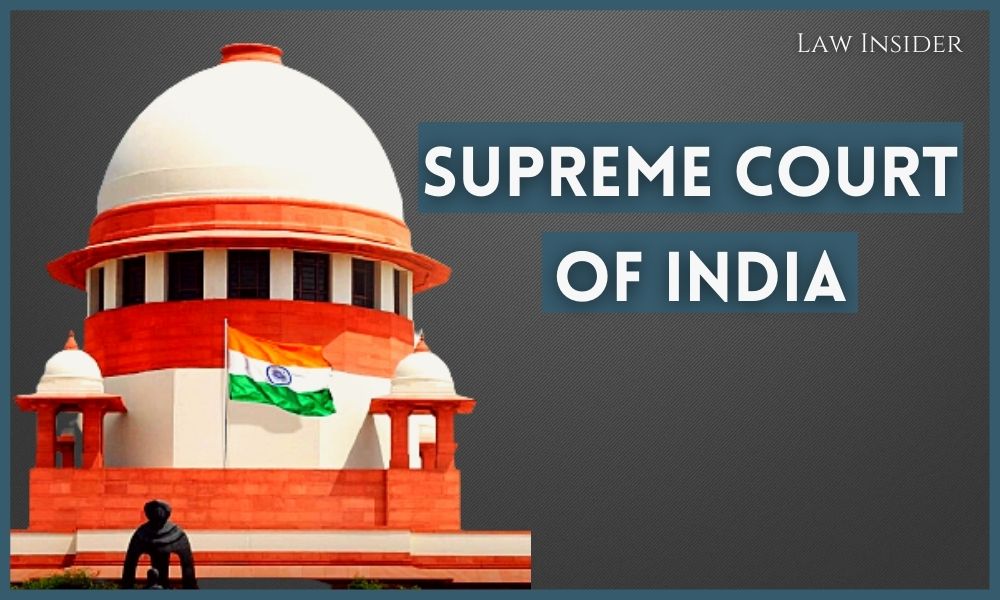LI Network
Published on: January 12, 2024 at 00:20 IST
The Supreme Court has endorsed the enhanced pay scale allowances for judicial officers, accepting the majority of recommendations from the Second National Judicial Pay Commission (SNJPC).
This directive requires state governments to promptly disburse arrears of salary, pension, and allowances owed to judicial officers, retired counterparts, and family pensioners. The deadline for these disbursements is set for February 29, 2024.
The judgment, officially titled All India Judges Association v. UoI and Ors., was delivered on January 4, and its detailed insights into allowances provided to judicial officers and retirees by SNJPC have been recently made public. Highlighting key aspects of these recommendations, this article delves into the significant changes.
1. House Building Advance (HBA):
SNJPC suggests extending HBA availability to judicial officers for purchasing ready-built houses from private individuals, subject to state government-prescribed safeguards. This is a departure from the previous restriction that limited HBA access to government sources.
2. Children Education Allowance (CEA):
Recommendations set the payment’s effective date from the academic year 2019-2020. The proposed CEA stands at Rs 2,250 per month, with an additional Rs 6,750 per month as hostel subsidy for up to two children until Class 12. Higher reimbursement rates are proposed for children with special needs.
3. Conveyance/Transport Allowance (TP):
SNJPC calls for discontinuing pool car services for judicial officers. It expands eligibility for official vehicles to include the Director of the Judicial Academy/Judicial Training Institute, Principal Judge of the Family Courts, and Secretary of the District Legal Services Authority. Additionally, officers can display an optional ‘Judge’ sticker on their vehicles.
4. Higher Qualification Allowance:
Judicial officers obtaining post-graduate or doctoral degrees in law are recommended to receive three advance increments. However, the proposal to deny advance increments at the ACP stage was rejected by the Court. The allowance is also extended to officers acquiring degrees through distance learning programs.
5. Hill Area/Tough Location Allowance:
Judicial officers serving in hill areas/tough locations are suggested to receive a monthly allowance of Rs. 5000. Any more beneficial provisions applicable to other state/UT officials will be extended to judicial officers.
6. Home Orderly/Domestic Help Allowance:
Among various recommendations, a home-cum-office orderly allowance is proposed for serving judicial officers at specific rates based on their positions.
7. House Rent Allowance and Residential Quarters:
SNJPC recommends urgent construction of residential quarters for judicial officers by state governments. The progress of construction should be closely monitored, and officers not provided government accommodation within one month may secure private housing with rent reimbursement.
8. Medical Allowance:
The fixed medical allowance is increased to Rs 3,000 per month for serving judicial officers and Rs 4,000 per month for pensioners and family pensioners, effective January 1, 2016.
9. Risk Allowance:
Judicial officers in Jammu & Kashmir and insurgency-affected North East States are proposed to receive risk allowances at the same rate as civilian government officials in those areas.
10. Special Pay for Administrative Work:
Acknowledging administrative responsibilities, the SNJPC recommends special pay for judicial officers in charge of certain courts/tribunals with effect from January 1, 2019.
11. Transfer Grant:
SNJPC proposes a composite transfer grant equivalent to one month’s basic pay on transfer. For transfers within 20 kilometers or within the same city (involving a residence change), the grant is set at 1/3rd of basic pay.
The Supreme Court has directed High Courts to establish a ‘Committee for Service Conditions of the District Judiciary’ to supervise implementation, emphasizing the importance of timely execution.

